Mufasa: The Lion King
 for action/violence, peril and some thematic elements.
for action/violence, peril and some thematic elements.
Reviewed by: Alexander Malsan
CONTRIBUTOR
| Moral Rating: | Average |
| Moviemaking Quality: |
|
| Primary Audience: | Family |
| Genre: | Animation Musical Drama Sequel |
| Length: | 2 hr. 0 min. |
| Year of Release: | 2024 |
| USA Release: |
December 20, 2024 (wide release) DVD: April 1, 2025 |
| Featuring |
Aaron Pierre … Mufasa (voice) Kelvin Harrison Jr. … Taka (voice), lion who later becomes known as Scar Mads Mikkelsen … Kiros (voice) Seth Rogen … Pumbaa (voice) Keith David … Masego (voice), Mufasa’s biological father Thandiwe Newton … Eshe (voice), Taka’s mother, Mufasa’s adoptive mother, and Obasi’s mate Lennie James … Obasi (voice), Taka’s father, Mufasa’s adoptive father, Eshe’s mate, and the leader of his pride Donald Glover … Simba (voice) Beyoncé Knowles-Carter (Beyoncé) … Nala (voice) Billy Eichner … Timon (voice), a meerkat John Kani … Rafiki (voice), a mandrill who serves as the shaman of the Pride Lands Kagiso Lediga … Young Rafiki (voice) See all » |
| Director |
Barry Jenkins |
| Producer |
Walt Disney Pictures Mark Ceryak See all » |
| Distributor |
“Orphan. Outsider. King.”
Prequels:
“The Lion King” original (1994)
“The Lion King” reboot (2019)
Once upon a time, long before he was King of the Pride Lands, Mufasa (voiced by Aaron Pierre) was just a cub. He was a cub that loved running and just exploring what was out in the Pride Lands. His mother tells him that someday they will all travel to the land beyond the sun called Milele, a land where the grass contains the brightest greens, the skies are blue, there is an abundance of life; in other words, paradise.
But paradise will have to wait. One day, after a very long drought, it suddenly begins to rain. Mufasa is excited and, along with his family, heads to a chasm that is beginning to fill with water from all the rain. But then the rain grows heavier and heavier and this begins to scare all the animals in the chasm (well I guess a ravine now). After the dam bursts, Mufasa is carried downstream and almost drowns.
As luck would have it though, another young cub named Taka discovers him floating down the river and saves him. Taka’s family does not want Mufasa to stay with them as he is an outsider and outsiders are, well, eaten. Over time though, Mufasa earns the respect of the others in Taka’s pack and the right to stay with them.
Taka and Mufasa become “brothers” and promise to always be there for each other. Taka’s father, Obasi, warns Taka that someday Mufasa will betray Taka and that Mufasa and Taka aren’t really brothers.
Just then White Lions, known simply as the Outsiders, attack Mufasa and Eshe (Thandiwe Newton), Taka’s mother. In the process one of the Outsiders is killed by Mufasa in self defense. Now the Outsiders, lead by King Kiros (Mads Mikkelsen’s voice), are out for revenge. This means Mufasa and Taka must leave the pride and venture far away toward Milele to find Mufasa’s parents.
“Mufasa” is a story of adventure, love… and betrayal.
At first glance, especially if you watch the trailers, “Mufasa…” isn’t much to look at. In fact, many might be turned off by the idea of a prequel to “The Lion King”. But if you look deeper, if you actually take the time to watch the film, there is quite a bit to smile about.
First off, while Taka and Mufasa aren’t blood related, they still act and treat each other like they are brothers. We see them laugh, run, wrestle with each, and look out for one another. This message that family is more than the blood that ties us is a strong message that is not often found in many animated films (granted some try to portray this, but it is either not the focus, or it’s just one of the smaller themes in the film). Often, animated features are focused on potty humor or trying to weasel-in adult content in a children’s film (in an effort to keep parents entertained).
I’m surprised, but also happy to report that the film’s bathroom humor is kept to a minimum. The greatest concern with this film, however, is that it handles much deeper and more complex themes, encompassed by far more violence than the original Lion King ever had. While the violence is never graphic (and much of it happens in brief moments or offscreen), the violence is far more prevalent. On a somewhat positive note (I do emphasize the word “somewhat”), there isn’t much toilet humor to deal with.
To the film’s credit, the animation is absolutely jaw-dropping. Every hair on the lions is perfectly detailed. The camera takes time to really hone in on the lush savanna, the Pride Lands set against the sunrise and sunsets, that even I remarked, “Wow, just wow!” The performances are fairly decent, with only a couple, like the Older Taka’s or Timon’s, falling a little flat.
The pacing overall is slow though, and I do mean snail’s pace slow, and I feel that most of this story probably could’ve been told in 90 minutes as opposed to 120 minutes.
Content of concern
VIOLENCE: There are intense fights with bites and scratches. An animal is crused to death. A lion is pushed off a cliff and into a pit of fire (Pumbaa jokes that he was eaten). As stated earlier, rain begins to fill an empty chasm that animals are playing in, and Mufasa is seen being swept away as are other animals. In another scene, an animal is almost eaten by alligators. Obasi threatens to eat a young cub. Eshe and Mufasa are seen being attacked by the Outsiders (Mufasa ends up fighting them and killing one). Lions are seen being circled by other lions to be eaten. Two lions jump off a cliff into water. A lioness causes a beehive to fall on the ground to get the bees to scare the elephants into moving (which will help the group). Lions are seen being injured by elephants.
A lion falls down a slippery steep hill. King Krios and another lion are seen fighting each other. During the struggle, Krios and the other lion fall down the hill. There is a moderately long fight between Mufasa and the Outsiders. A lion falls down a hole. A lion receives a scar on its eye (hint, hint). There is a fight between two lions underwater, and one is pinned down by a falling boulder which drags the lion to the bottom of the lake (we VERY briefly see the lion’s corpse, nothing overly graphic though).
SEXUAL: Pumbaa comments that there are naked animals in this movie. Zazu mentions that he once had a crush on a flamingo. Someone tells another that he “knows where their head is.” Animals show affection for each other by brushing up against another’s face (somewhat like Eskimo kissing).
OCCULT/SPIRITUAL: Rafiki is accused of summoning the devil and talking to spirits. Rafiki chants to bring a lion back to life. Indeed, he chants a lot of spiritual nonsense. Raifiki also encourages others to seek out visions and follow them blindly. There are many moments that involve questionable actions and statements made by characters about life after death, things that sound a lot like universalist theology, such as “He lives in you,” everyone being a part of the “Circle of Life” (some say this is about the relationship between predator and prey. I’m not convinced though).
OTHER: There is a brief joke about a three-legged zebra. Pumbaa is seen eating bugs. Pumbaa states he has a gross fragrance that he created, “Pumbaa by Pumbaa.”
Lessons
Taka takes the first step in looking out for Mufasa. He welcomes him with open arms… er… I mean paws. Mufasa is considered an outsider by everyone in Taka’s pride, except by Taka and Eshe. They see Mufasa as someone to be celebrated, loved and watched over.
Jesus came for the poor, the unloved and those that need his love. He tells others to come as they are, to repent, and believe in The Father and in Him. When people accept Him, when they take his offer, when they put their trust in Him, they, like Mufasa, become part of a family that cannot be broken. They become part of God’s family. The Apostle John stated this…
“But to all who did receive him, who believed in his name, he gave the right to become children of God, who were born, not of blood nor of the will of the flesh nor of the will of man, but of God.” —John 1:12-13
Other disciples of Jesus stated the following:
“Do not rebuke an older man but encourage him as you would a father, younger men as brothers, older women as mothers, younger women as sisters, in all purity. Honor widows who are truly widows. But if a widow has children or grandchildren, let them first learn to show godliness to their own household and to make some return to their parents, for this is pleasing in the sight of God. She who is truly a widow, left all alone, has set her hope on God and continues in supplications and prayers night and day…” —1 Timothy 5:1-5
Jesus Himself said…
“While he was still speaking to the people, behold, his mother and his brothers stood outside, asking to speak to him. But he replied to the man who told him, “Who is my mother, and who are my brothers?” And stretching out his hand toward his disciples, he said, “Here are my mother and my brothers! For whoever does the will of my Father in heaven is my brother and sister and mother.” —Matthew 12:46-50
Conclusion
I’m not sure if anyone asked for a prequel to “The Lion King” (or, really, an origin story). Nevertheless “Mufasa…” feels like yet another tribute to all of us who grew up with the original Lion King (not the 2019 film). The music by Lin Manuel Miranda (who Disney is trying to make into the next Alan Menken) is a hit and miss, but mostly a hit (like “Moana 2,” the villain songs are both pop and really don’t fit, not like Scar’s “Be Prepared” from the first film).
When it comes to positive messaging, themes of love, honor, friendship, welcoming those who need a home, are massively prevalent in the film. However, the violence and even the threat of violence is far more present than in either “The Lion King” reboot (2019) or the original Lion King (1994). This makes me hesitant to recommend “Mufasa…” to younger children, but older children and teens would handle it well (though I think teens might be bored. You never know though. I took my high school music students to see “Moana 2” because they really wanted to see it, so…). In the case of this Disney film, I feel that the positive themes outweigh some of the harsher content (not all though). Ultimately the decision is yours.
- Violence: Heavy
- Occult: Moderate
- Sex: Minor
- Profane language: Minor
- Vulgar/Crude language: None
- Nudity: None
- Drugs/Alcohol: None
- Wokeism: None
 Learn about
Learn about
LIONS of the Bible
See list of Relevant Issues—questions-and-answers.


Moral rating: Average / Moviemaking quality: 4
My biggest issue was a scene where a monkey (I forgot his name) was being exiled from his pack because he frequently talked to the Moon. One monkey stood up for him saying how he predicted harm before it happened and saved all of the group. After this scene, the monkey meets Mufassa and leads him to this place that is described as a paradise. The monkey says he has never been there but has seen it in dreams and takes him there based off of what he saw. I have a problem with this scene and a few that follow it because it is Biblically inaccurate and shares ideologies with paganism.See all »
Moral rating: Offensive / Moviemaking quality: 4
PLEASE share your observations and insights to be posted here.
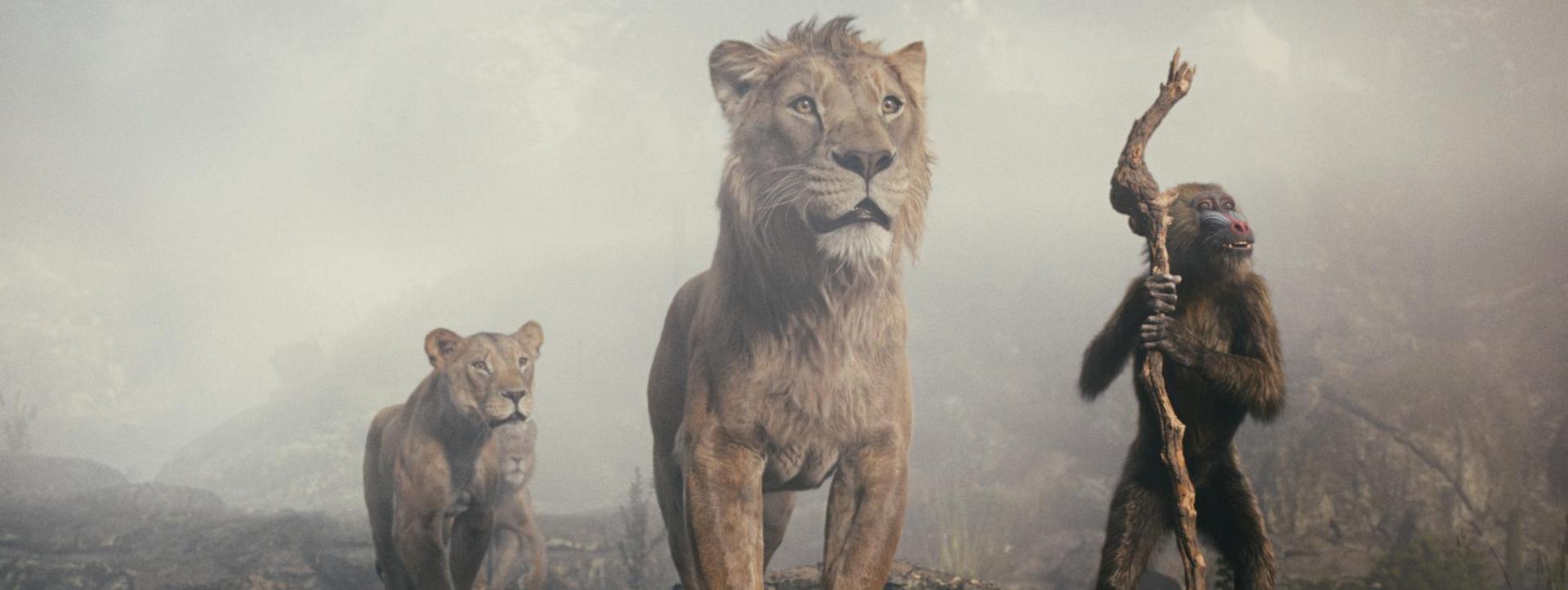


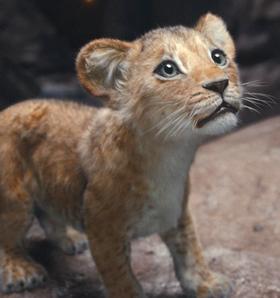
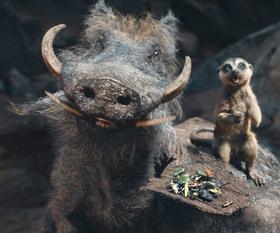
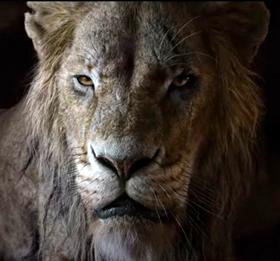
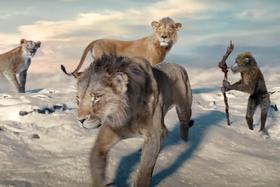
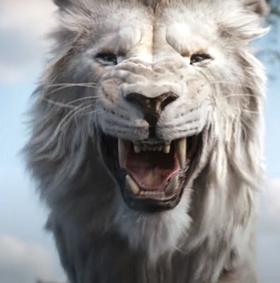
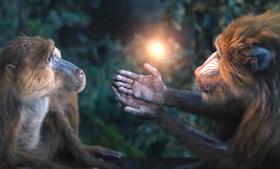
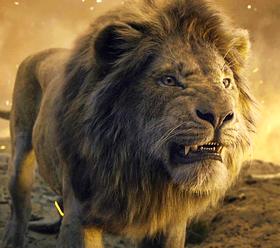
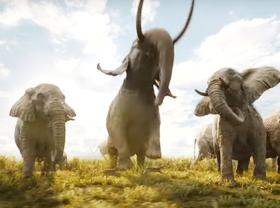
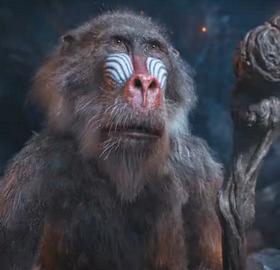


My Ratings: Moral rating: Good / Moviemaking quality: 5